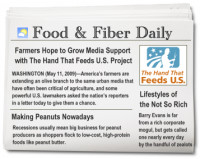 I want to shake The Hand That Feeds U.S. Here’s a great example of helping bring the story of today’s American farmer to the public.
I want to shake The Hand That Feeds U.S. Here’s a great example of helping bring the story of today’s American farmer to the public.
America’s farmers are extending an olive branch to the same urban media that have often been critical of agriculture, and some powerful U.S. lawmakers asked the nation’s reporters in a letter today to give them a chance.
“It makes no sense that we’re being demonized by many of the nation’s top newspapers,” said Linda Raun, a rice grower from Texas who is participating in The Hand That Feeds U.S., a new farmer-led project to improve relations with big-city reporters.
“It’s not the newspapers’ fault,” she continued. “We haven’t done a good enough job telling them our story. We’ve been negligent in explaining that farmers and farm policy feeds and clothes every person in this country, employs 20 percent of the nation’s workforce and will be at the center of America’s economic recovery.”
Andy Quinn, a Minnesota corn and ethanol producer agrees. “We’re the best farmers in the world, but we’re far from being master communicators. For too long, we’ve let a handful of environmental extremists and coalitions bankrolled by big business define our industry in the news.”


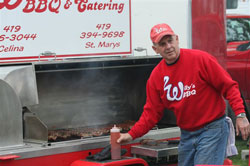 Trent Loos let me know via Twitter today that the first photos are in for his Faces of Agriculture
Trent Loos let me know via Twitter today that the first photos are in for his Faces of Agriculture 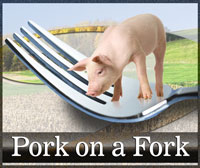 “No matter how you refer to it, H1N1 influenza has unfairly devastated the livelihood of the American pork producer, and that puts at risk the health of the American public,” said Faces of Agriculture spokesperson Trent Loos.
“No matter how you refer to it, H1N1 influenza has unfairly devastated the livelihood of the American pork producer, and that puts at risk the health of the American public,” said Faces of Agriculture spokesperson Trent Loos.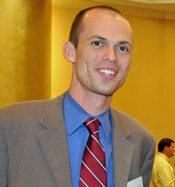 There are two big issues for corn growers this year in Washington, DC, climate change and higher blends for ethanol. I spoke with two representatives of the National Corn Growers Association at NAFB’s Washington Watch Issues Forum about them.
There are two big issues for corn growers this year in Washington, DC, climate change and higher blends for ethanol. I spoke with two representatives of the National Corn Growers Association at NAFB’s Washington Watch Issues Forum about them.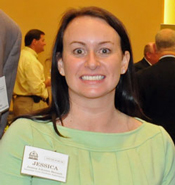 NCGA’s Jessica Bennett is actively involved in the regulatory issue of increasing the blend level for ethanol allowed in gasoline to 15 percent. “As corn growers, ethanol is top priority for our association,” Bennett said. “We’re quickly approaching a ten percent blend wall of ethanol that can be blended into conventional gasoline and we need to move beyond that.”
NCGA’s Jessica Bennett is actively involved in the regulatory issue of increasing the blend level for ethanol allowed in gasoline to 15 percent. “As corn growers, ethanol is top priority for our association,” Bennett said. “We’re quickly approaching a ten percent blend wall of ethanol that can be blended into conventional gasoline and we need to move beyond that.”
 Hello and welcome to another ZimmCast. This week I’m going to feature a couple of the interviews I did at last week’s NAFB Washington Watch Issues Forum.
Hello and welcome to another ZimmCast. This week I’m going to feature a couple of the interviews I did at last week’s NAFB Washington Watch Issues Forum.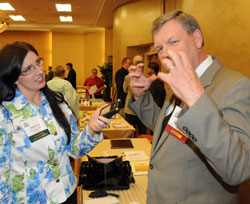 Up first after opening comments is Mark Maslyn, Executive Director, Public Policy,
Up first after opening comments is Mark Maslyn, Executive Director, Public Policy, 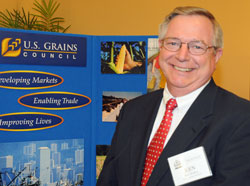 Next up in the program is an interview with Ken Hobbie, President/CEO,
Next up in the program is an interview with Ken Hobbie, President/CEO, 
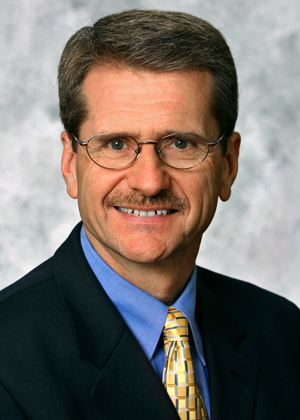
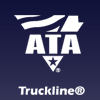 Let’s practice a little safe trucking out there guys. Okay?
Let’s practice a little safe trucking out there guys. Okay?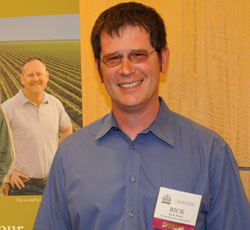 Rick Stearn is chairman of the production committee for the United Soybean Board. He was attending the NAFB Washington Watch Issues Forum.
Rick Stearn is chairman of the production committee for the United Soybean Board. He was attending the NAFB Washington Watch Issues Forum.